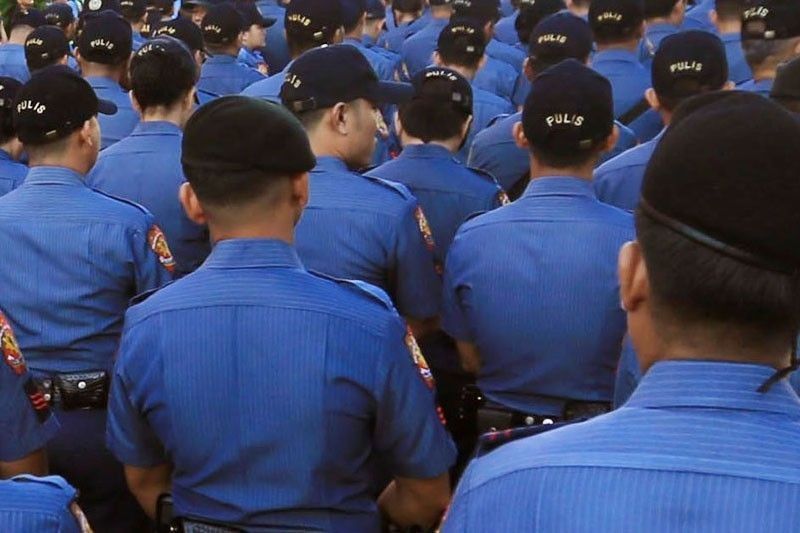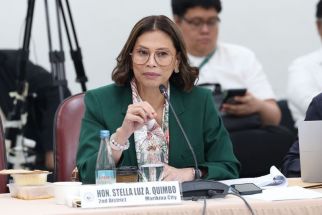Amid worries on manpower and mandate, House panels OK free legal aid to military, cops

MANILA, Philippines — House committees on Wednesday approved proposed bills to provide free legal assistance to personnel of the Armed Forces of the Philippines and Philippine National Police.
The bills have been amended to also cover personnel of the Bureau of Jail Management and Penology, Bureau of Fire Protection and Philippine Coast Guard.
The House’s committees on Justice, National Defense and Security and the Public Order and Safety Panel approved the measure consolidating House Bills 4312, 5972, 9898, 9969, 3929, 9902, 9961, 3141, 2499 and 7842.
President Rodrigo Duterte batted for the passage of the bills proposing free legal aid to military and cops charged over actions in line of duty in his final State of the Nation Address.
During the hearing on Wednesday, Rep. Arlene Brosas (Gabriela party-list) manifested her continuing objection to the proposed measures, asking whether the bills give "special privilege" to uniformed personnel.
She pointed out in Filipino: “[How about] teachers and other government employees, do they have free legal assistance when they are sued in performance of duty?”
Rep. Vicente Veloso III (Leyte), chair of the House’s Justice Committee, said Brosas can object to the bill when it is debated in plenary.
Conflict of interest
The Public Attorney’s Office and the Office of the Solicitor General, who delivered their positions at the start of the hearing, raised potential conflicts of interest if they will be tapped to give legal aid.
PAO deputy chief public attorney Ana Lisa Soriano said the agency is “very supportive” of the measures, but raised “points of consideration.”
She noted that most of PAO’s clients are those sued by the AFP and PNP. Noting their 2020 accomplishment report, Soriano reported that PAO handled 586,438 criminal cases in favor of indigents as accused.
Under Republic Act 9406, the agency is mandated to render free legal aid to indigent persons in criminal, civil, labor, administrative and other quasi-judicial cases. Going by this mandate, indigents naturally flock to PAO for assistance, she added.
With indigents as accused, she noted a "clear conflict of interest scenario vis a vis legal assistance to AFP and PNP personnel." Soriano said this pushes the need for PAO’s "first come, first served" rule.
"The PAO submits that the strengthening of the APF and PNP legal offices, especially for the agencies' needs by expansion of work force, upgrading [positions and salaries of legal officers and increase in employee benefit will truly address the intention of the bill," PAO added.
Assistant Solicitor General Myrna Agno-Canuto told lawmakers that the Office of the Solicitor General acknowledges the need to provide free legal aid to uniformed personnel.
Citing jurisprudence from the Supreme Court, Agno-Canuto noted that the OSG "cannot represent at any stage a public official who was accused in a criminal case… to prevent clear conflict of interest in the event that the OSG would become the appellate counsel for People of the Philippines once judgment is on appeal."
The OSG listed two recommendations: They said that if legal complement of PAO is increased, "then separate division for this purposes is established then it’s also possible."
Another possibility is beefing up the legal divisions of the AFP and PNP. "In that case, the intent of the bill will also be served," she added.
Beef up legal teams of AFP and PNP
Brig. Gen. Ser-Me Ayuyao, AFP judge advocate general, said the office has the mandate to provide legal assistance to military personnel but cited "scarcity in number."
He said the JAG office should have around 500 lawyers but only has 150, and they can only serve cases that are at the brigade level when cases cover the battalion level.
For the Philippine National Police, its Legal Affairs Acting Director George Almaden said they need around 600 lawyers to address the needs of police personnel from the national headquarters down to provincial units.
They would need 17 lawyers in every region, he added.
But the PNP at present only has 156 uniformed lawyers and, at their national headquarters, four civilian lawyers, Almaden said.
National Union of Peoples’ Lawyers President Edre Olalia in July noted that soldiers and military officers, like everyone else, are entitled to the constitutional rights to due process, which includes the right to counsel.
But Olalia pointed out that there would be no need for a measure to give them access to free legal aid if they only perform their duties regularly.
He continued: "In fact, with all these rights violations and abuses, it is the victims of security forces that most need free, competent and independent counsel." — Kristine Joy Patag
- Latest
- Trending





























